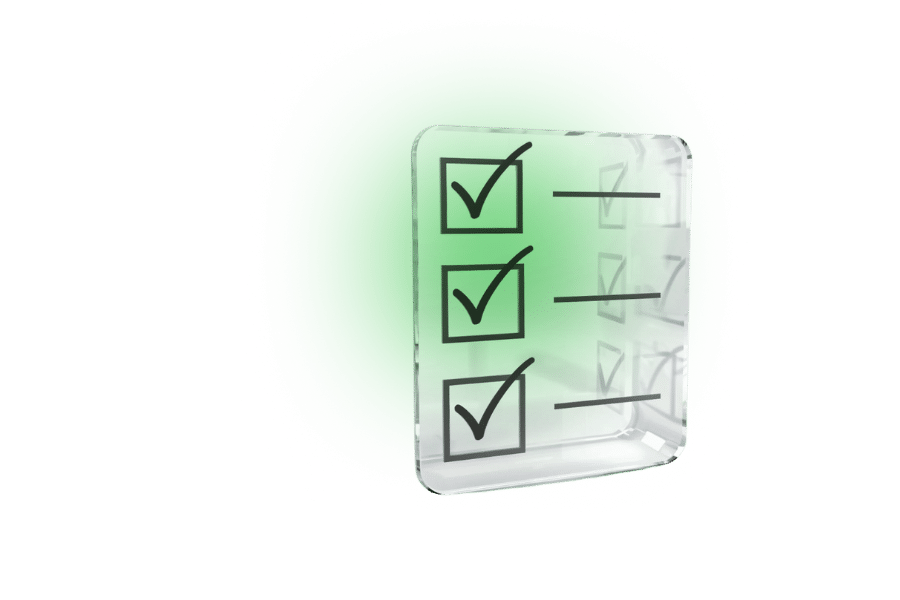Report WhatsApp Blackmail and Take Back Control of Your Life Today
Receiving a blackmail threat on WhatsApp can steal your peace of mind and drain your energy. However, you can regain control of your life and fight back against your attacker. Our digital investigators have advanced technology and a proven track record of protecting victims of blackmail. If you want to fight against your blackmailer, contact our 24/7 helpline for expert support.
Helpline 24/7: (317) 676-7767Get Help Now!
How We Help Victims of WhatsApp Blackmail
Assessing the situation with care
Our team will evaluate the severity of the blackmail to understand the full scope of the threat. We then develop a strategy to respond to the blackmailer directly.
Prioritizing your safety and privacy
We take immediate action to secure your accounts and devices. Our work begins with protecting your privacy, but we also monitor online platforms for any non-consensual release of your sensitive information.
Investigating the blackmailer’s digital trail
Our digital forensic experts can analyze and trace the blackmailer’s online footprint. We utilize the latest technology to investigate the blackmailer and uncover critical information, such as their geolocation or identity.
Putting an end to the blackmail
We employ expert strategies based on our investigation to deter the blackmailer from continuing their attack.

Rules to Follow If You’re a Victim of WhatsApp Blackmail
Blackmailers want their targets to make rash decisions. They will use urgent deadlines and relentless threats to create a sense of panic, leaving no time for careful consideration. However, you should always carefully consider your response to blackmail. Having a plan of action can significantly lower the risk of exposure. If you’re dealing with WhatsApp blackmail, follow these three important rules.
- Never give in to the demands Complying with a blackmailer’s demands is not an effective way to put an end to the threats. In fact, it often worsens the situation. Once a cybercriminal knows you are susceptible to their threats, they will apply even more pressure on you. It’s best to cut off communication with the blackmailer to prevent the situation from escalating.
- Save the evidence
Evidence of the blackmail is needed to initiate an investigation and to support future legal actions like restraining orders or lawsuits. Take screenshots of messages, the profiles involved, and any other information that’s relevant to the crime. - Reach out for help
While the burden of blackmail can be traumatic, experiencing it alone can be overwhelming. Talk with a trusted family member, friend, or counselor for more emotional support. Reporting the blackmail to your local law enforcement is also an essential step. The police can guide you on the best next steps to take.
You’re Safe with Our Experts
Why we’re the team you can rely on

Our experts protect you from exposure
We actively monitor the internet for any leaks of your sensitive information and immediately take action to minimize the impact.

We take the fight to the blackmailer
Our team attacks the blackmailer where it hurts most — their anonymity. We use proprietary strategies and tools to track the blackmailer’s online activity and digital footprint.


Our work is rooted in ethical transparency and legal integrity
We thoroughly document our digital forensics process and follow a strict chain of custody to ensure our investigation is admissible as evidence in legal proceedings.

We collaborate closely with law enforcement
We’re globally connected to law enforcement agencies, supporting their efforts to combat and address cybercrimes.
Preventing WhatsApp Scams
FAQ about WhatsApp Blackmail
What is WhatsApp blackmail?
Online blackmail is when a bad actor coerces someone to perform an action by threatening to publicly expose their private information. These criminals often exploit WhatsApp as a secure instant messaging app to communicate with and blackmail their victims more freely. Their scheme typically begins on other platforms like social media networks or dating apps.
After initiating contact and building rapport on those platforms, the perpetrators will direct the conversation onto messaging services like WhatsApp to continue their extortion in a private environment.
How did they obtain my private information?
Blackmailers will create fake profiles on online platforms to pose as trusted individuals and organizations. Their goal is to deceive users into revealing sensitive information or unwittingly giving them access to their own accounts or devices. In phishing scams, perpetrators attempt to trick victims into clicking on links laced with malware or visiting fraudulent websites designed to steal login credentials.
The cybercriminals may also catfish the potential victim, using the likeness of an attractive individual. They lure victims into an online relationship where private data — like images, videos, or financial information — is exchanged. Once the perpetrator gains access to the victim’s private data, the blackmail starts.
How should I respond to blackmail on WhatsApp?
Being blackmailed can be deeply emotionally distressing. However, it’s important to think carefully about how you respond to the threat. Responding impulsively can escalate the situation and increase the chances of exposure. To protect yourself, you should try to remain calm and follow best practices to prioritize your protection and safety. Here are the recommended steps to take when facing WhatsApp blackmail.
- Do not pay. You may think their demanded price is worth your privacy, but paying will do nothing to prevent them from following through. They will still hold the leverage, and paying will only incentivize them to ask for more. Instead, use delay tactics while you get the help you need.
- Use heightened security settings. Increase your privacy controls to limit who can view your account. You should also enable two-factor authentication (2FA) or passkey login, both of which are supported by WhatsApp. It’s worth noting that you should avoid blocking the perpetrator, as this can delete critical evidence and spur retaliation.
- Save evidence. Victims of blackmail need to preserve the evidence, as it can be used to support legal action. Your evidence can even launch official investigations that lead to criminal charges. Make sure to take screenshots of threatening messages, the profiles involved, and anything else that is relevant to the crime.
- Notify law enforcement. You should always report instances of blackmail to your local authorities. They can help you file an official report and guide you to the best steps to take for your situation. In many cases, the report may initiate an investigation in which the police will use specialized tools to uncover the identity of the criminal.
- Report it to the FBI. You should also report the crime to the FBI’s Internet Crime Complaint Center (IC3). The FBI’s IC3 is the national reporting center for cybercrimes, and agents often use the database to discover cases to take on. You can report your case to the FBI through the field office nearest to you or the IC3 website.
- Address your mental health. This is just as important as any other step. Being blackmailed online is emotionally devastating, and you shouldn’t try to handle this turmoil alone. Speak with a trusted friend, family member, or mental health professional about what you’ve experienced. These discussions can help you navigate complex emotions, spread awareness, and remove the unjust stigma placed on victims.
Should I report WhatsApp blackmail?
WhatsApp provides a self-reporting feature for users to notify the instant messaging service of any inappropriate behavior. Victims of WhatsApp blackmail should always report messages threatening blackmail to the platform, as it could result in the perpetrator’s account getting removed. Reporting a profile on WhatsApp shares the last five messages the user sent to you with the platform administrators.
The messaging app also provides the option to “Report & Block” other users. However, it’s important to take caution when blocking a blackmailer. They can often discover that they’ve been blocked and may expose your private information in retaliation. Blocking the blackmailer may also permanently delete evidence of the crime. Take note of the following steps if you want to report a user on WhatsAp.
To report a contact on WhatsApp:
- Open the chat with the user you want to report.
- Open their contact information.
- Select “Report” at the bottom of the menu options.
To report a view once photo or video:
- Open the view once photo or video.
- Tap “More (…)” in the bottom corner.
- Select the “Report Contact” option.
Why should I trust you?
At Cyber Investigation Inc., we understand how overwhelming and frightening it can be to experience blackmail. That’s why we’ve made it our mission to stand with and fight for victims. Our team has years of expertise and state-of-the-art technology that allow us to stay one step ahead of cybercriminals. With more than 220 ratings and an average score of 4.9 out of 5, we’ve earned the trust of those we’ve helped by truly prioritizing their privacy, safety, and peace of mind.
Getting Help: What are some resources available to WhatsApp blackmail victims?
Online blackmail is hard for anyone to deal with, especially if they are alone in the situation. Blackmailers make their victims think they are powerless and have no way out or no one to go to for help. This is not true. There are numerous resources available to victims, so they don’t have to deal with this alone. Sextortion can cause serious emotional trauma, and most victims don’t know how to deal with the stress. Here are some outlets you can reach out to for support.
- National Center for Missing and Exploited Children (if you are a minor)
https://www.missingkids.org/gethelpnow/support - Cyber Civil Rights Initiative
844-878-CCRI (2274)
https://cybercivilrights.org/ - Victims For Justice
https://victimsforjustice.org/support-services/
907-278-0977
Stand Up to Blackmail with the Support of Cybercrime Experts
Get Help Now

